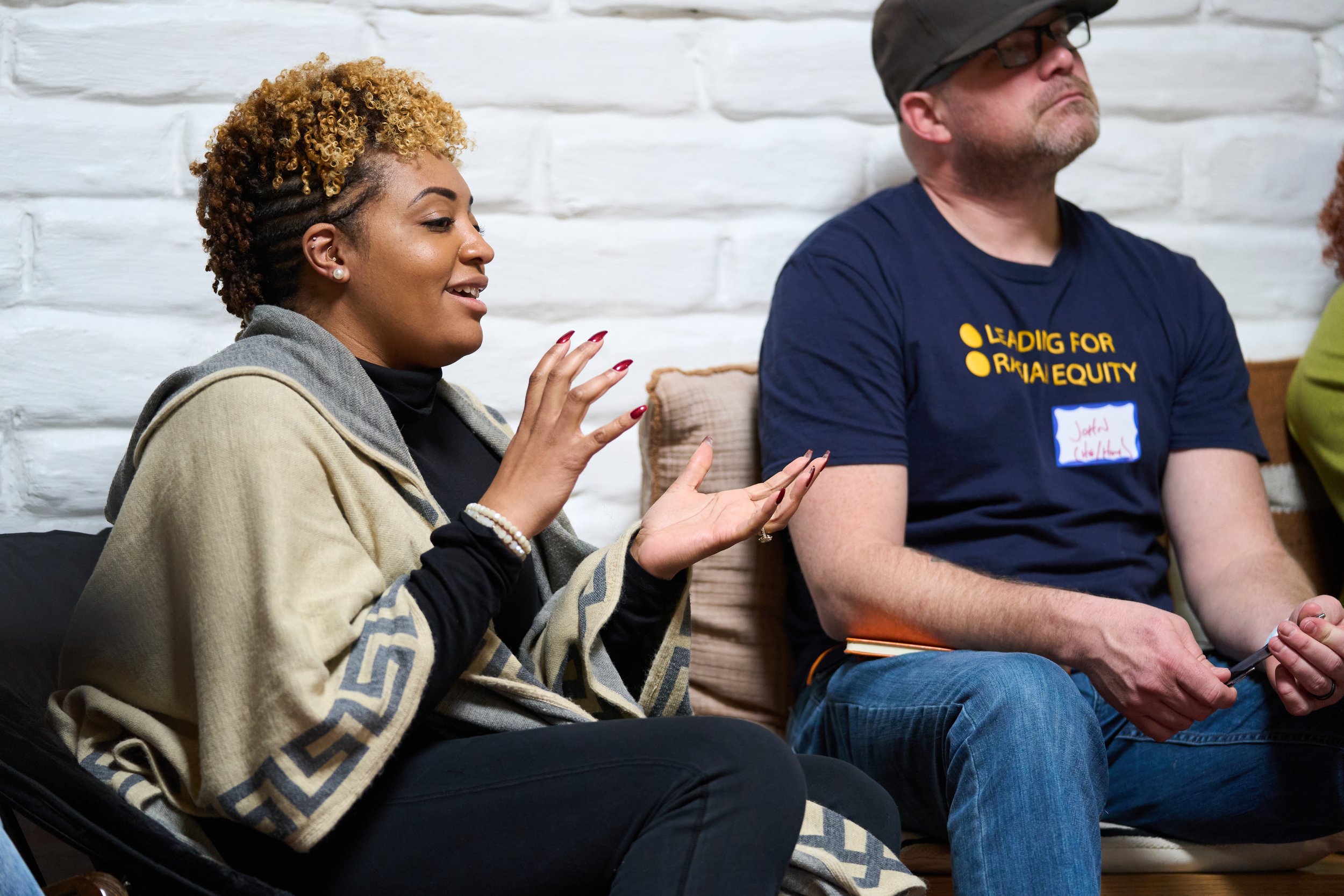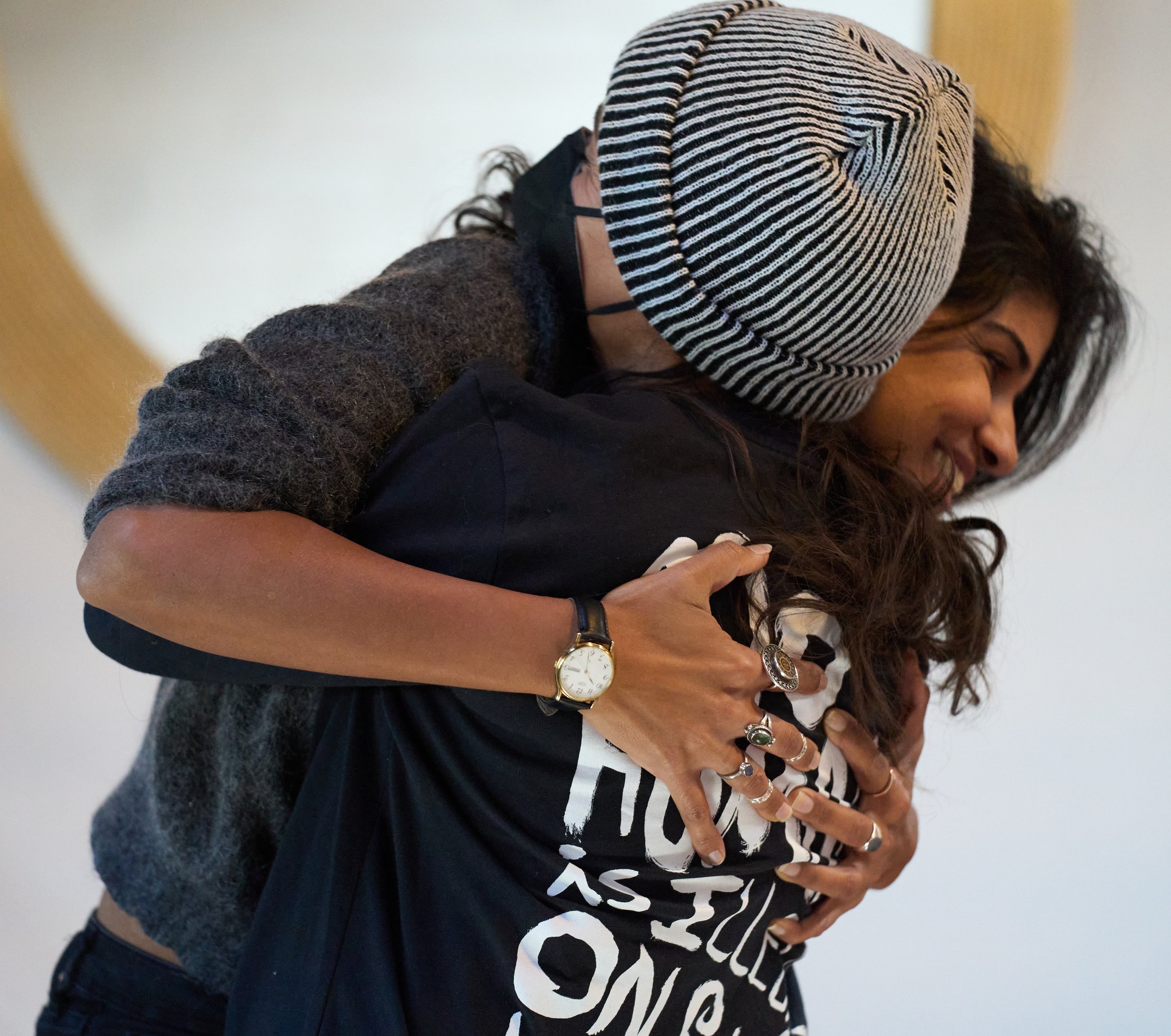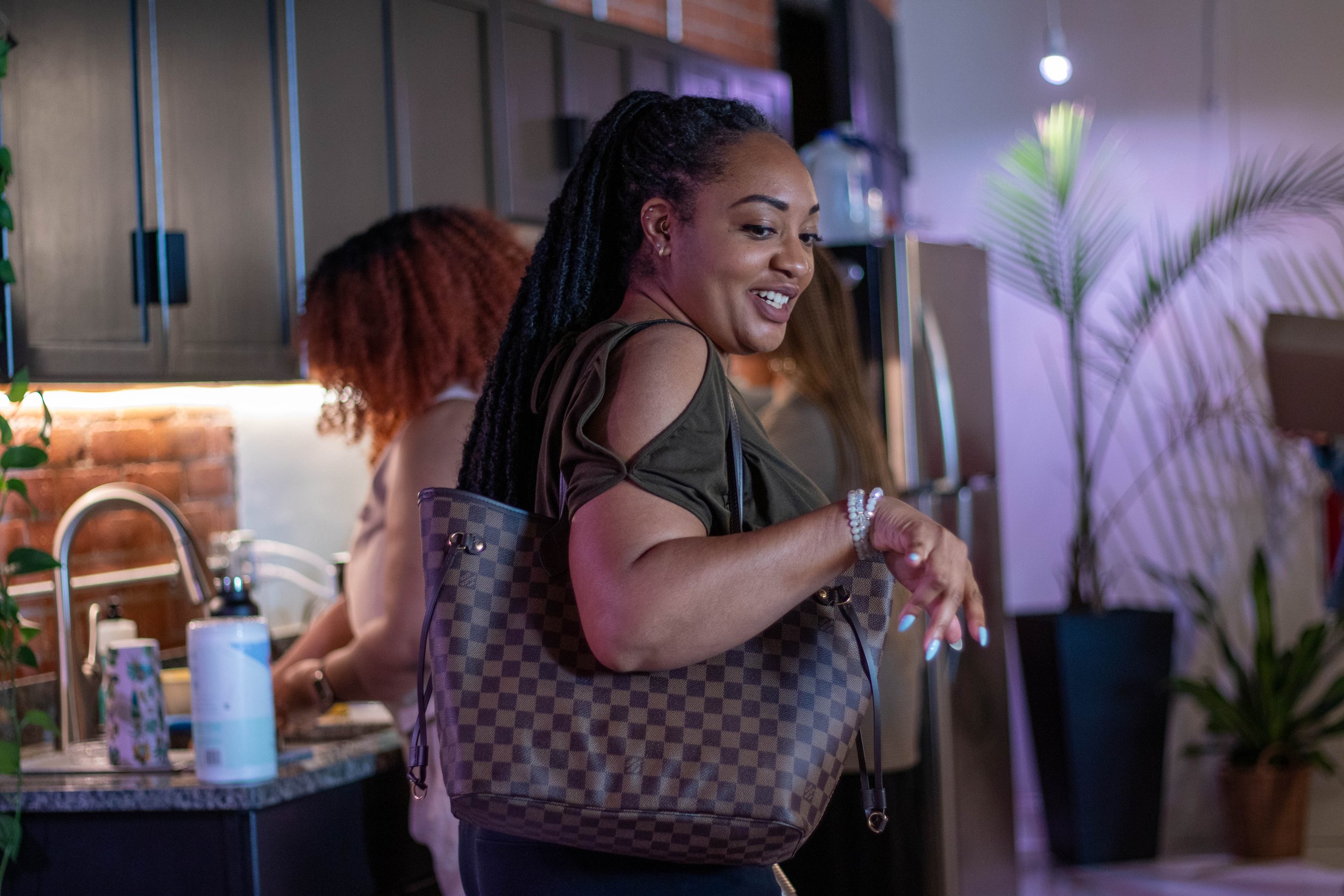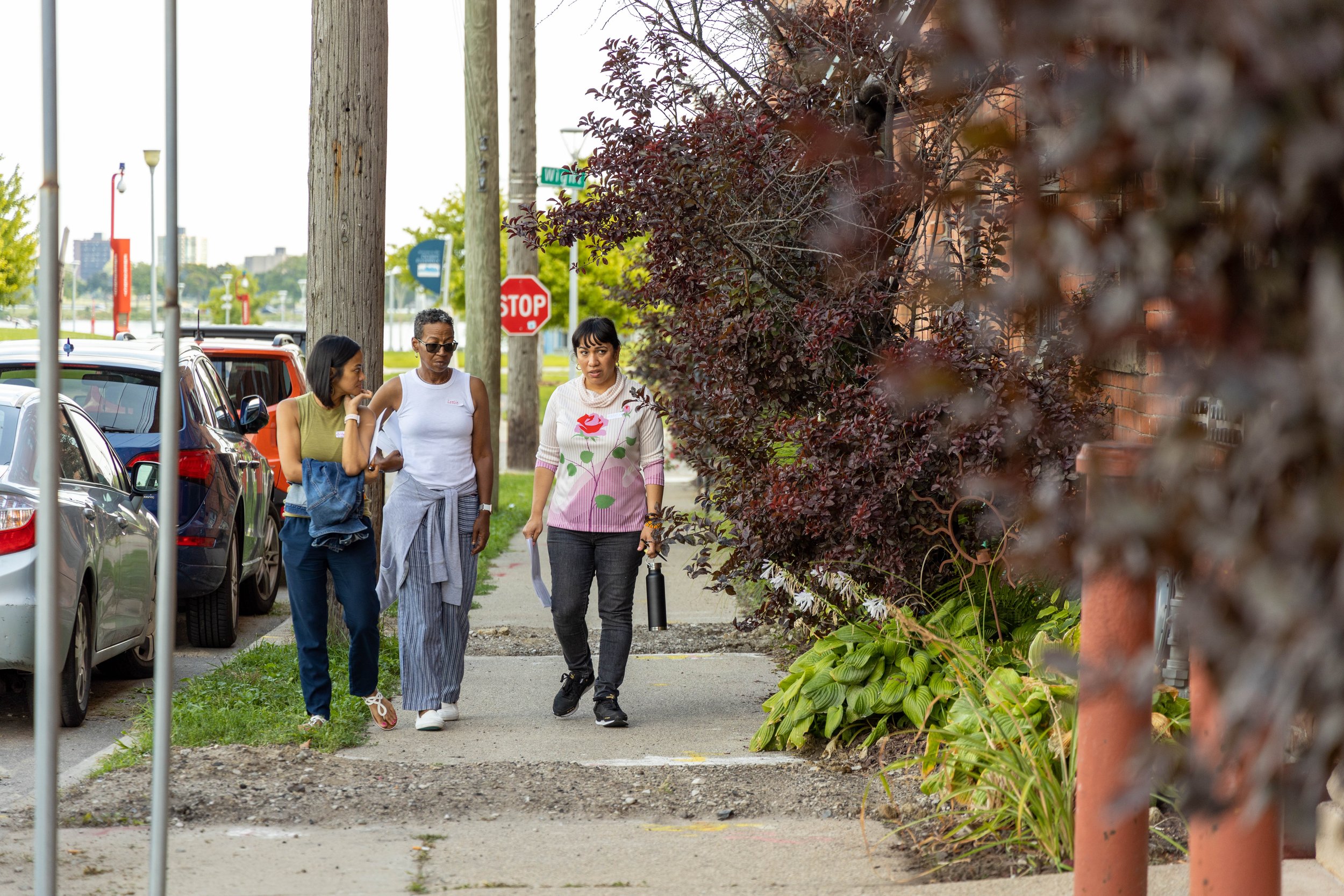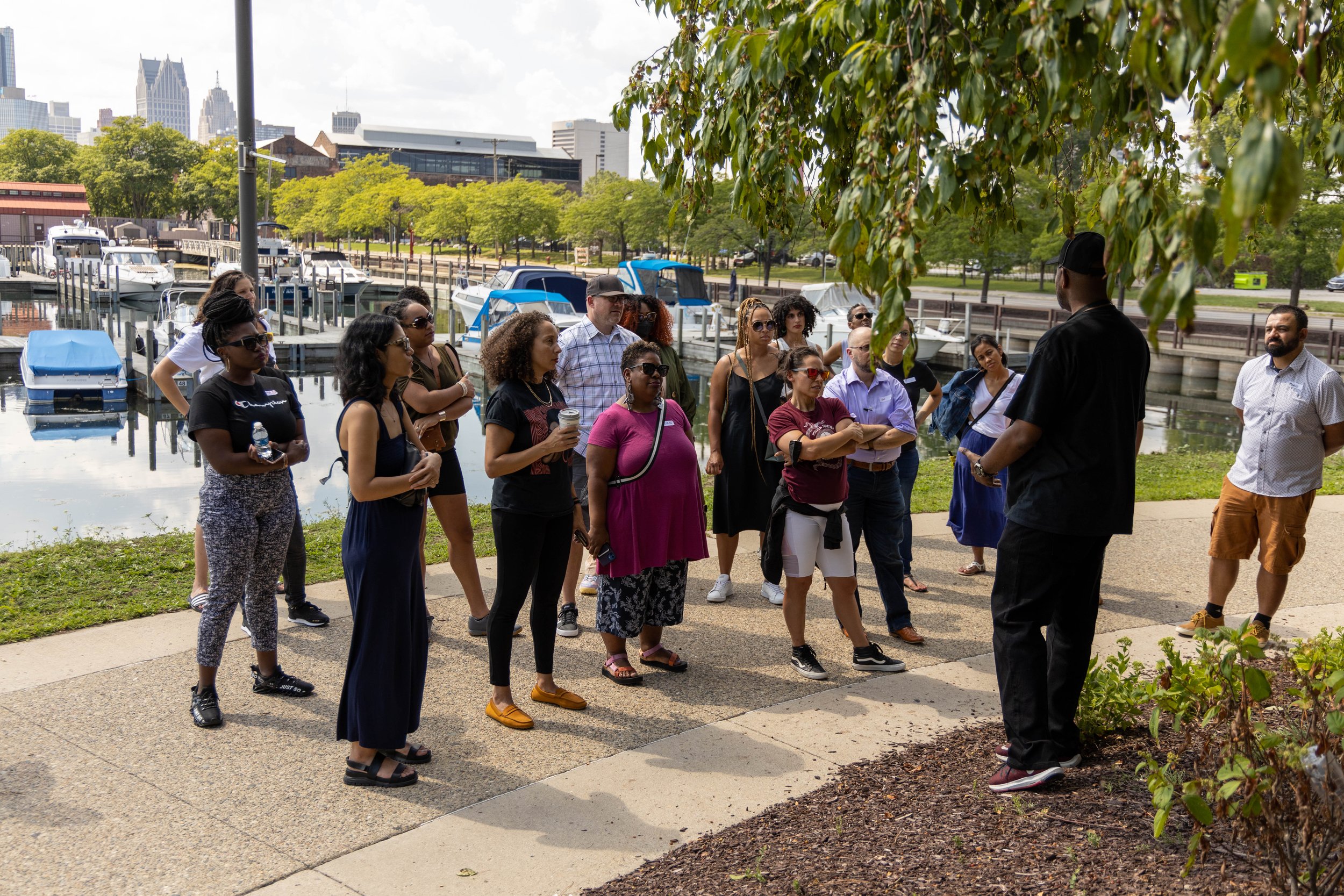Putting Place at the Heart of our Practice
By Alicia Robinson, with Nicole Young
In our work at The Equity Lab, we are constantly reaching toward a future none of us has ever seen: a world where our systems and institutions are designed with equity at the center.
The pathway to that future is expansive, and it also requires a constant, methodical reevaluation of the tools and resources we are using to achieve our goals. It requires us to “be like water:” to remain open to change and ever-evolving in our service to the needs and circumstances in front of us.
As our Nexus Fellowship launched its third cohort in Fall 2022, we were excited to get back to the in-person experience we had with our first cohort; COVID-19 safety restrictions and precautions meant our second cohort (which took place in 2020 and 2021) did not have this same opportunity.
While building community and connection was one of the original hallmarks of the Nexus Fellowship, we didn’t realize how much we’d taken for granted in those pre-pandemic days. This newfound appreciation for the unique connections available through in-person meeting led our team to think more deeply about ways to ensure that our Fellows made meaningful connections in the cities where the week-long Nexus Fellowship residencies are held.
The Equity Lab (TEL) has spent nine years building coalitions across the country. We do this through every aspect of our work, from long-term engagements—where individuals join arms to drive a focus on Race, Equity, Diversity, and Inclusion (REDI) forward in their organizations—to our Fellowships—where leaders come to learn, test, and practice cross-sector solutions to disrupt inequities. Grounded in a revolutionary and liberatory historical context, we always strive to understand the past as we individually and collectively build a new future. So with Nexus, it seemed only natural that through TEL’s efforts to build coalitions across every state, we should ensure that place—the literal locations we gather—be one of the teachers from which our Fellows draw expertise.
Our most recent Nexus cohort has spent their fellowship convenings so far in three cities: Detroit, MI; Albuquerque, NM; and Tulsa, OK; and they will conclude their experience in Montgomery, AL, in June of 2023. Each of those cities was purposefully chosen as both the backdrop for our workshops as well as places where we could work with organizers, visionaries, and educators on the ground to learn from their work and deepen our collective practices around equity. Each of these cities held stories about resilience, reimagination, and creativity that has allowed their people not just to survive, but thrive. We now see a critical part of each week’s learning to be about exploring the city’s history, learning about the local political and organizing contexts, and building coalition with leaders actively working to disrupt inequitable outcomes for youth in those cities.
In Michigan, after a tour led by city historian Jamon Jordan, of sites with significance to Detroit’s history of disruption of oppressive systems, we met with grassroots and grasstops city leaders committed to uplifting and spotlighting youth and family voice and to driving policy and community change.
In New Mexico, Maȟpíya Black Elk with NACA Inspired Schools Network opened our week in Albuquerque with a Lakota prayer, before a dinner at the National Hispanic Cultural Center. Later in the week, Laurie Weakhee helped us set the tone as we gathered to meet with Indigenous, Hispanic, Latinx, and Black leaders working for their individual and collective liberation.
In Oklahoma, a walking tour of Tulsa’s Black Wall Street and a visit to the Greenwood Rising Museum allowed Nexus Fellows to learn about the thriving Black community that was Greenwood, a little over 100 years ago. Later, in a panel discussion held at Booker T. Washington High School (a school founded to serve African American students and later chosen to be the vehicle for Tulsa’s school desegregation efforts), local artists, educators, community activists, nonprofit leaders, and historians shared how a city so shaped by the tragedy of racism continues to push toward triumph and reconciliation.
Soon, in Alabama this June, we’ll spend the week learning from Montgomery’s history of individual and collective resistance and mobilization. We will visit sites with historical significance to the struggle for civil rights and racial violence and meet with leaders designing for equity and liberation with the community. With these place-based learnings in mind, Nexus Fellows will be asked to reflect on these truths as they design their own plans to mobilize toward equity in their own organizations and communities.
Cohort III’s Nexus Fellowship experience will end later this year, and this group of leaders will soon join past cohorts of alumni, equipped with the tools to combat racist and oppressive systems through targeted action. As our TEL cross-country network grows, so does our ability to more fully realize the vision of reconciliation and liberation. Because we understand that coalition is more than about who you know, but about building the kind of deeply grounded connections—be it Fellows, faculty, staff, or panelists—that can be activated for support and action when we need it most.
Special thanks to the activists, artists, organizers, and strategists we’ve met across the past Fellowship year:
Anpao Duta Flying Earth, Executive Director, NACA Inspired School Network (Albuquerque, NM)
Dinée Dorame, Associate Director, College Horizons (Albuquerque, NM)
Nichelle Gilbert, Associate Director, Partnership for Community Action (Albuquerque, NM)
Meriah Heredia-Griego, PhD, Founder & CEO, Levado (Albuquerque, NM)
Natane Lim, Project Manager, Embracing Equity (Albuquerque, NM)
Loida Maritza Pérez, Founder and Director, Afromundo (Albuquerque, NM)
Cathryn McGill, Founder/Director, New Mexico Black History Organizing Committee, New Mexico Black Leadership Council (Albuquerque, NM)
Laurie Weahkee, Consultant (Albuquerque, NM)
Dr. Leah van Belle, Executive Director of 313Reads (Detroit, MI)
Bernita Bradley, Facilitator and Partnership Manager, Engaged Detroit (Detroit, MI)
Dr. Sirrita Darby, Co-Founder and Executive Director of Detroit Heals Detroit (Detroit, MI)
Alexis Davis, Program Manager, Service Employees International Union (Detroit, MI)
Alyssa Williams, Director of Equity Initiatives, Strategic Community Partners (Detroit, MI)
Vanessa Adams-Harris, Outreach and Alliance Director, John Hope Franklin Center for Reconciliation (Tulsa, OK)
Terry Baccus, Greenwood Tour Guide and Historian (Tulsa, OK)
Victoria Dangtoumda-von Atzigen, Program Coordinator, The Oklahoma Center for Community and Justice (Tulsa, OK)
Cara Golden, Programs Director, The Oklahoma Center for Community and Justice (Tulsa, OK)
Shekinah Hall, Social Studies Teacher, McLain High School for Science & Technology (Tulsa, OK)
Alexander Tamahan, Painter/Muralist/Bead Artist, Black Moon (Tulsa, OK)
Darren Williams, Social Studies Teacher, McLain High School for Science & Technology (Tulsa, OK)


